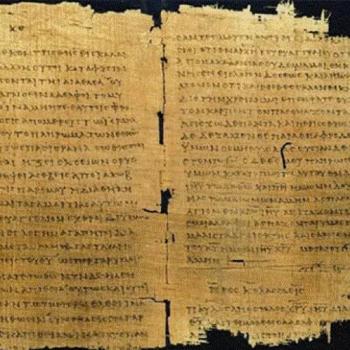Happy New Year! Let’s Talk About the Bible!
As we begin the year of 2024, I want to introduce you to the importance of the Bible.
The Bible is the most important book (or collection of literature to be more accurate) on the planet. Within the works of the Bible, Human authors used the tools at their disposal to communicate the words of God to a human audience. God’s inspiration for these texts is what leads Christians to find these texts to be authoritative. The tools used to communicate these words include cultural context, the primacy of oral tradition, the use of royal archives to collect the final rendition of oral texts that come out of oral tradition*, and the usage of linguistic styles and genres that were known to specific people in a specific place in time. In other words, God communicated to specific people at a specific place in time, and we can reap the benefits of it today.
In Light of God’s Inspiration, What Do Christians Believe About the Bible?
Traditionally, Christians everywhere believe the Bible to be inerrant in all that it teaches. The Bible contains everything we need for teaching, correction, and reproof. It’s God-breathed. Yet, the term “Inerrancy” may need some clarification. So, what do we Christians mean by inerrant?
Here is the Short Statement from the 1978 Statement on Biblical Inerrancy made by the International Council of Biblical Inerrancy:
1. God, who is Himself Truth and speaks truth only, has inspired Holy Scripture in order thereby to reveal Himself to lost mankind through Jesus Christ as Creator and Lord, Redeemer and Judge. Holy Scripture is God’s witness to Himself.
2. Holy Scripture, being God’s own Word, written by men prepared and superintended by His Spirit, is of infallible divine authority in all matters upon which it touches: it is to be believed, as God’s instruction, in all that it affirms; obeyed, as God’s command, in all that it requires; embraced, as God’s pledge, in all that it promises.
3. The Holy Spirit, Scripture’s divine Author, both authenticates it to us by His inward witness and opens our minds to understand its meaning.
4. Being wholly and verbally God-given, Scripture is without error or fault in all its teaching, no less in what it states about God’s acts in creation, about the events of world history, and about its own literary origins under God, than in its witness to God’s saving grace in individual lives.
5. The authority of Scripture is inescapably impaired if this total divine inerrancy is in any way limited or disregarded, or made relative to a view of truth contrary to the Bible’s own; and such lapses bring serious loss to both the individual and the Church.
You can find the rest of the document with its supporting affirmations and denials Here.
Why is the Bible Important?
In short, without the Bible, we would not have much information about the following:
- The Teaching and Ministry of Jesus
- The Death and Resurrection of Jesus
- The Prophecies revolving around the Coming Messiah
- The History of the People of Israel
- The Foundational Beliefs that shaped the Israelite (and thus the Christian’s) Worldview
- The Earliest Doctrines of the Church
- Names of Important Figures to verify the Historicity of the Events Portrayed
- Regions, Cities, and Geographic Locations to Search for Physical Evidence of the Portrayed Events
- The Character of God and how we as His people relate to Him
The list could easily continue, but to say that the Bible is an important text would be a massive understatement. This is why, since we do indeed have it, the ability to trust is of utmost importance. Without the scriptures, the foundation for our faith would be lost to history.
Thus, if we can’t trust the Bible and what it teaches, then how can trust the events of which is shares with us.
This Series
In this series of articles, we at The Thinking Theist hope to help you understand why we can trust the Bible. You will see us cover the following topics regarding the Bible:
- Names Found in the Gospels
- Locations found in the Gospels
- Topographical Information in the Gospels and Acts
- The Manuscript Evidence that Supports the New and Old Testament
- Archaeological finds that Help support the New and Old Testament
- How Jesus Treated the Old Testament
- Oral Tradition and Its Function Within the Ancient Near East
- Any Questions that you have regarding Biblical Reliability
Let us know what you think in the comments and if you have any questions regarding this important topic!
If you want to continue to follow our content, make sure you subscribe so that you can receive our Newsletter.
If you want to see our other articles, go to THIS LINK
*This especially comes into play with the Old Testament














